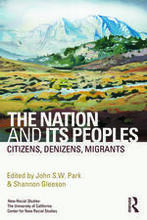Once forcibly returned to their countries of citizenship, how and why do deportees engage in transnational relationships? Through analyses of 37 interviews with Jamaican deportees, I approach the question of why deportees engage in transnational practices and reveal that deportees use transnational ties as coping strategies to deal with financial and emotional hardship. This reliance on transnational ties, however, has two consequences: (1) male deportees who rely on transnational strategies to survive face a gendered stigma because they must relinquish the provider role and become dependants; and (2) the transnational coping strategies serve as a reminder of the shame, isolation and alienation that deportees experience because of their deportation. This consideration of the consequences of transnational relationships sheds light on why some migrants are transnational and others are not.
Publications by Year: 2014
2014
Golash-Boza T. Forced Transnationalism: Transnational Coping Strategies and Gendered Stigma Among Jamaican Deportees. Global Networks. 2014;14(1):63–79.
Golash-Boza T. Tattoos, Stigma, and National Identity Among Guatemalan Deportees. In: Gleeson S, Park J, Gleeson S, Park J, editors. The Nation and Its Peoples: Citizens, Denizens, Migrants. Routledge; 2014. pp. 202–222.
Golash-Boza T. Race and Racisms: A Critical Approach 1st Edition. 1st ed. New York: Oxford University Press; 2014. p. 528.


